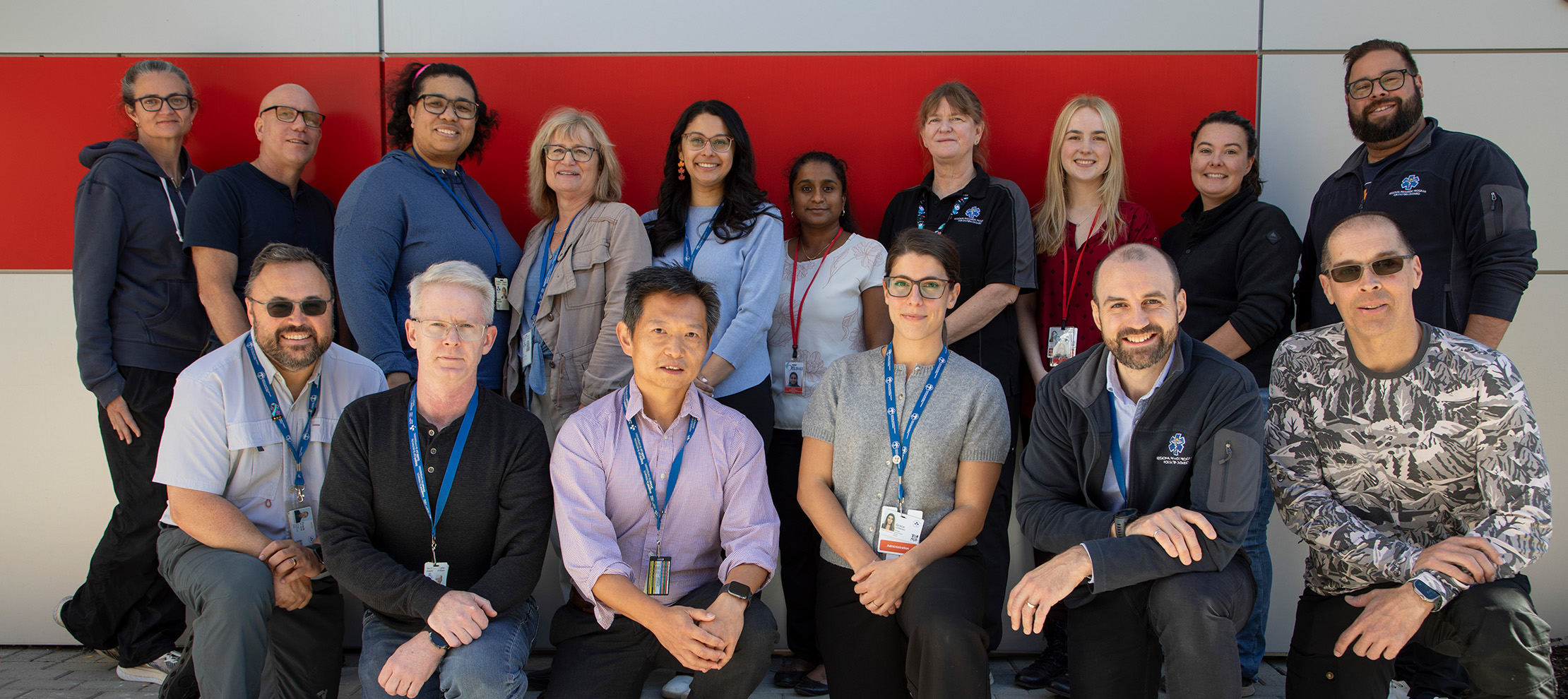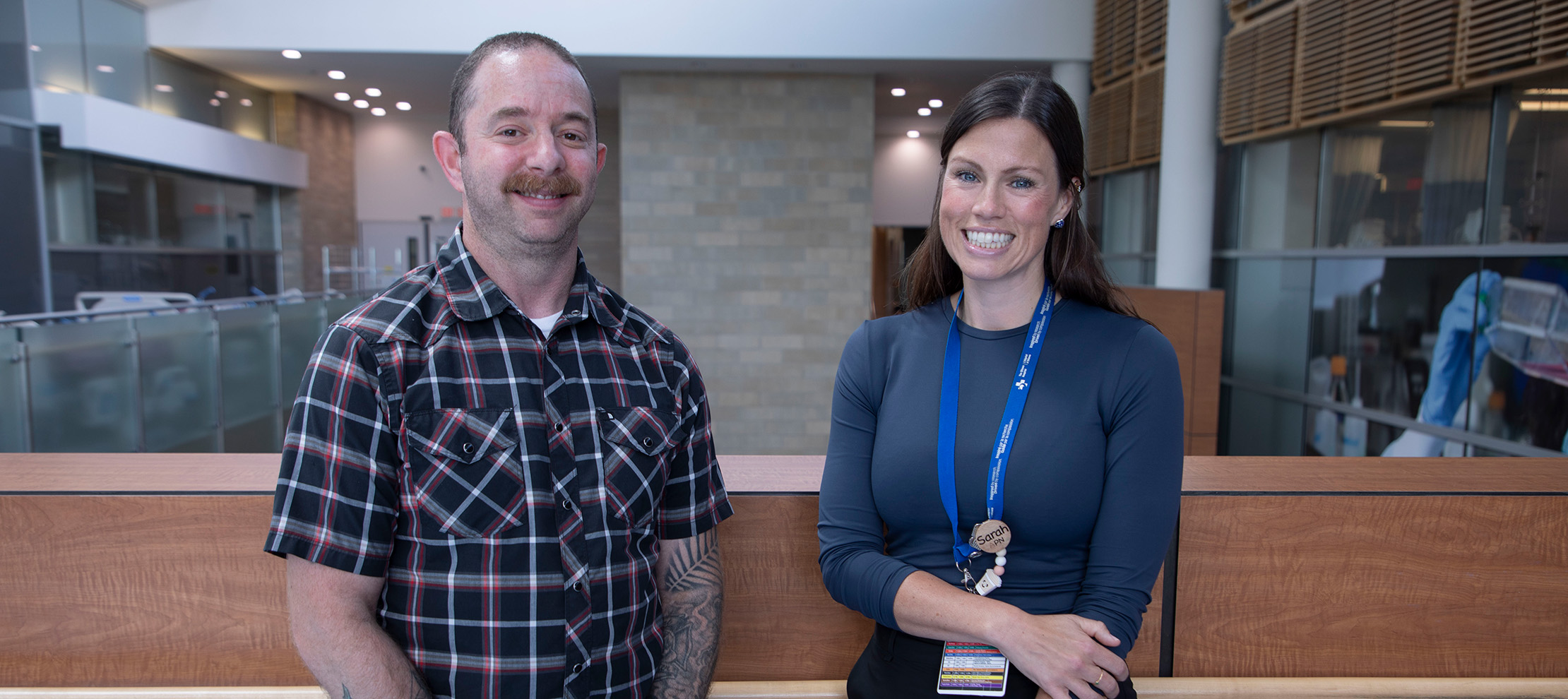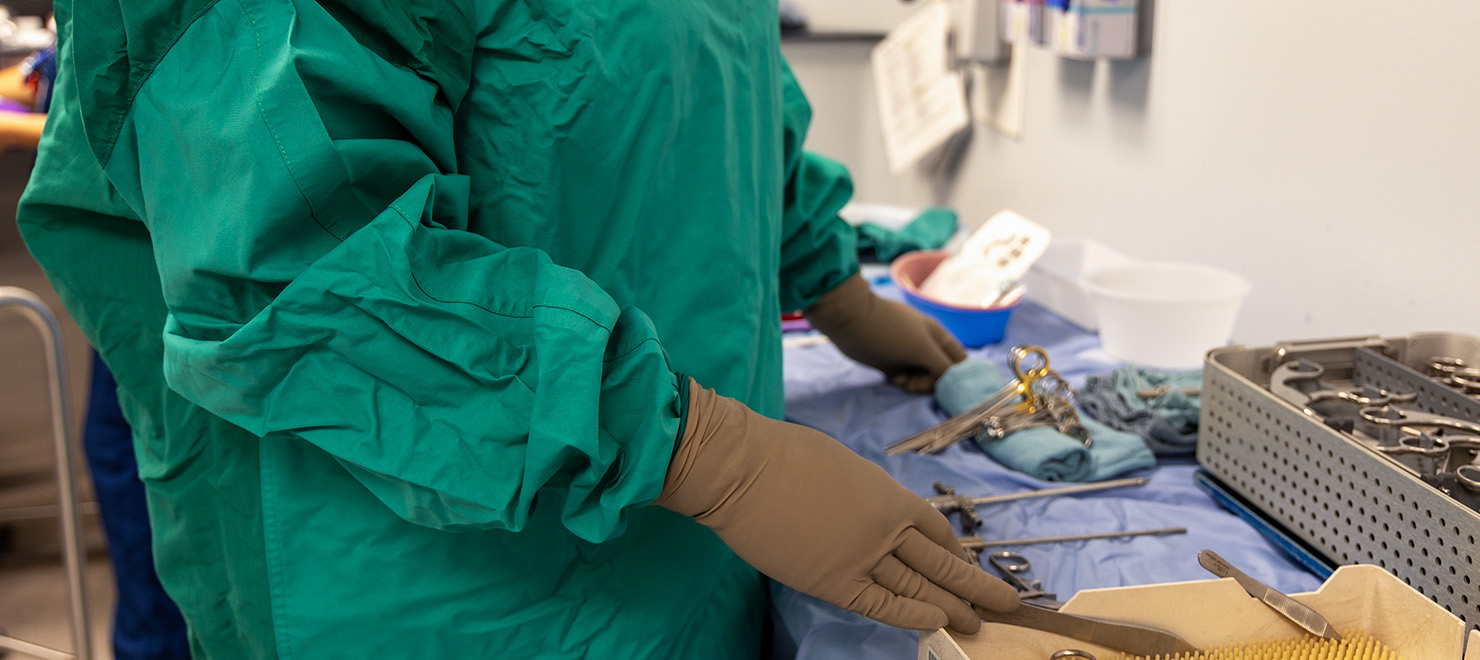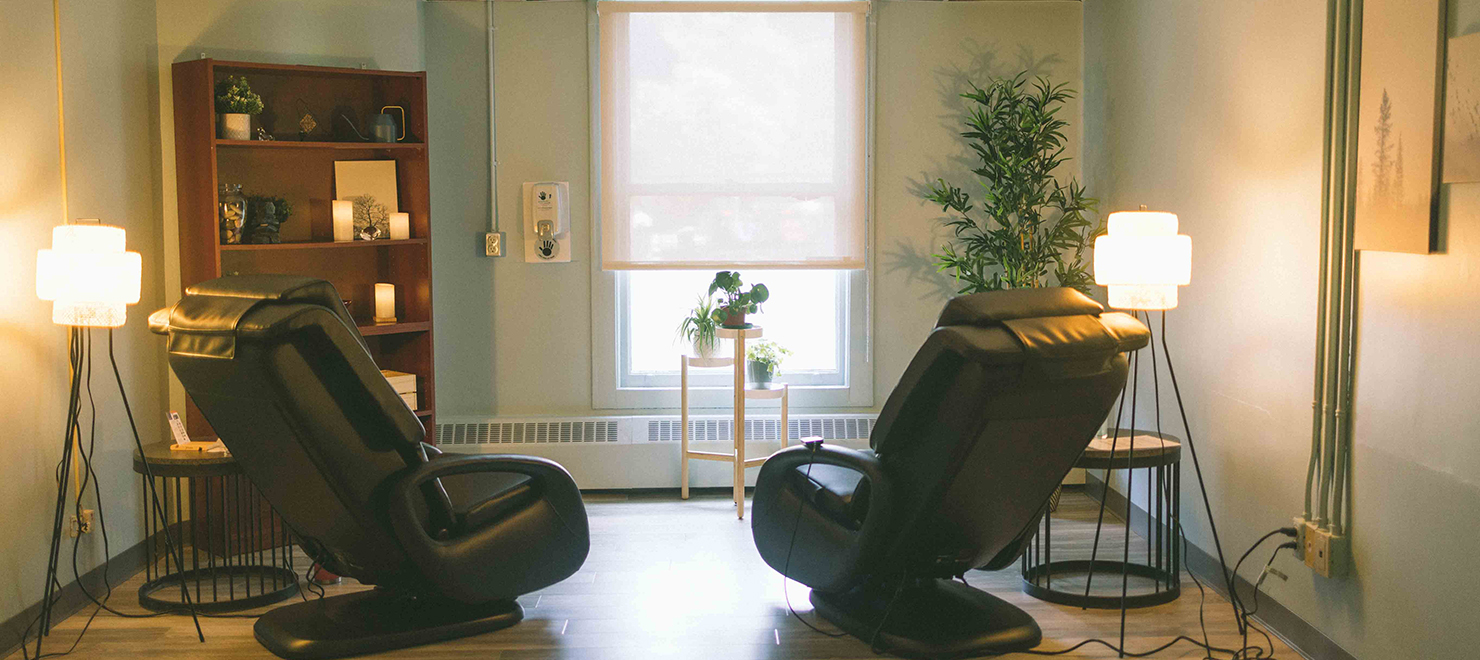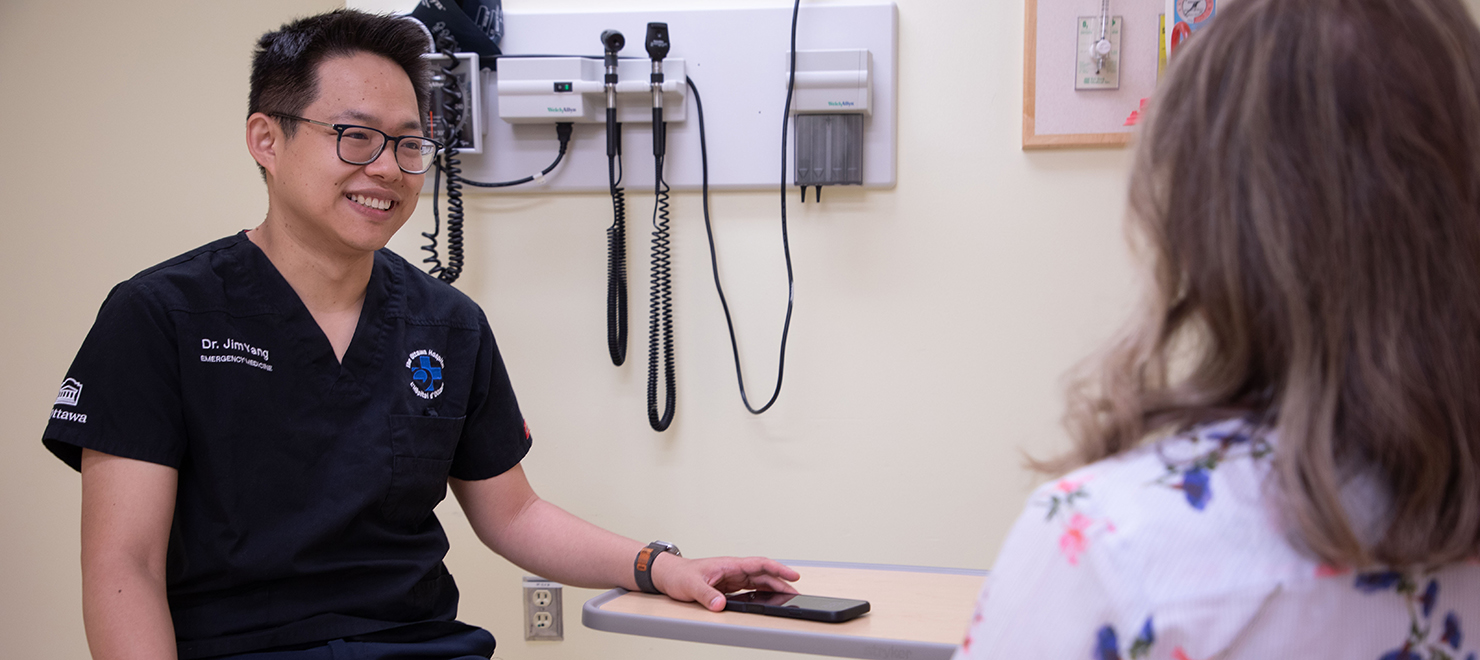
In June of 2024, The Ottawa Hospital launched a trial to evaluate how artificial intelligence (AI) technology could help reduce the time physicians spend drafting visit notes and, hopefully, increase their time spent providing patient care.
Over the course of last summer and into the fall, 70 clinicians working in outpatient clinics, primary care and urgent care were introduced to DAX Copilot, an innovative tool designed to improve clinical documentation using AI. On average, physicians spend 10 hours per week on clinical documentation tasks, as per the Canadian Medical Association.
The Ottawa Hospital is the first in Canada to trial this cutting-edge technology in acute care settings, in collaboration with Microsoft + Nuance.
Hear from our physicians about how leveraging DAX Copilot significantly reduces the time they spend on documentation, allowing them to focus more on patient care and improve their own well-being.
But first, how does DAX Copilot work?
DAX Copilot is an AI assistant, which means it uses generative AI to securely record clinician-patient conversations during appointments, converting them into medical notes, while complying with Canadian health privacy laws. The drafted note is then reviewed and finalised by the physician. Patients must consent to the recording of their appointments and can later access the note through the MyChart patient portal.
“I’m seeing and treating more patients.”
The DAX Copilot trial at The Ottawa Hospital began in 2024, launching at various clinical areas in primary care and specialty clinics in June and August (General Internal Medicine, General Surgery, Medical Oncology, Family Health, Nephrology, Occupational Health and Orthopedics), followed by an expansion to the Emergency Department in September.
The results are in: Physicians at The Ottawa Hospital report that using the tool is decreasing their mental load, as it creates a first draft for review and allows them to spend less time note taking during appointments. Additionally, evaluation in the hospital’s Emergency Departments saw an increase in patient flow of two patients per physician per shift.
As per Microsoft, 70 per cent of physicians reported a reduction in feelings of burnout and fatigue after using the AI assistant, saying it improved their work-life balance. Additionally, 80 per cent of physicians have stated it reduces their cognitive burden.
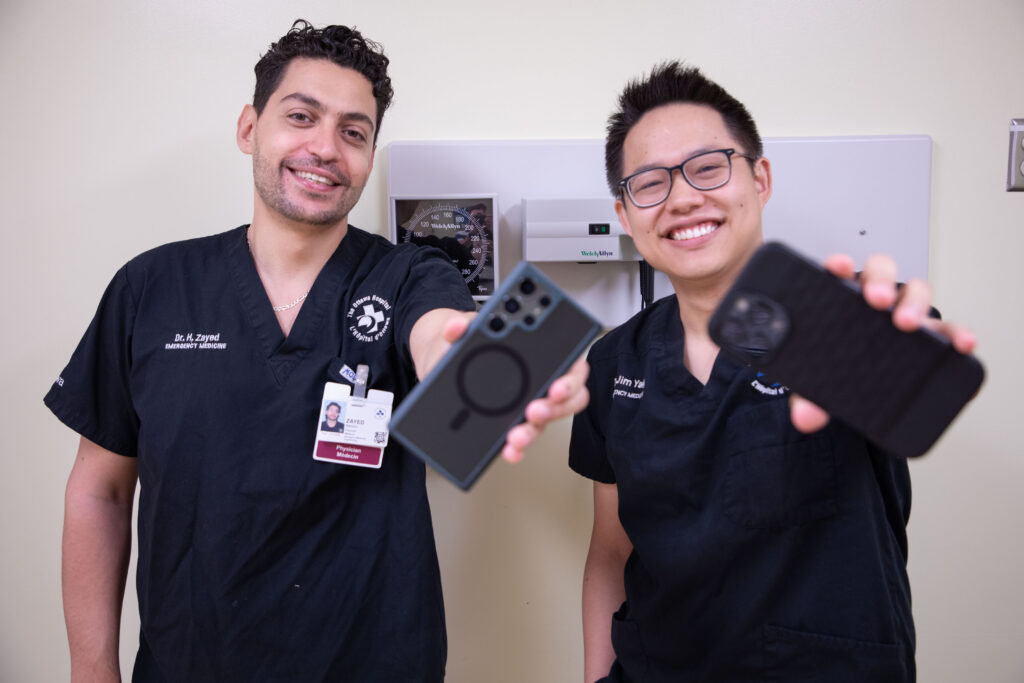
Dr. Haroun Zayed uses DAX Copilot in the Emergency Department and is seeing significant improvements to his workflow. “It’s allowed me to focus more on patient care and less on paperwork — I’m seeing and treating more patients,” says Dr. Zayed. “It’s improved my job satisfaction, work-life balance and overall wellness. I can’t imagine working a shift without it!”
DAX Copilot enables active listening and a more human-centered interaction for patients, enhancing their overall experience. Our patients’ overall rating of care consistently increased by two per cent or more when using the AI assistant. 98 per cent of patients saw a positive or neutral impact of the tool during their interactions with physicians. Additionally, patients report a better understanding of the recommendations made and an increase in feeling that the doctor listened to the things that mattered most to them.
As one of the trial’s Emergency Department physicians, Dr. Jim Yang is also quite familiar with the tool. “It has had a positive impact on my clinical workflows, to the benefit of my patients and my own well-being,” says Dr. Yang. “It reduces the amount of time spent on note-writing — while preserving the quality of my notes — and time spent on administrative tasks.”
Dr. Yang concludes, “DAX Copilot allows me to spend more time on the aspects of medicine that I love: spending time with each patient, listening and focusing on their care needs, and connecting in a more human way.”
What’s next?
The DAX Copilot trial at The Ottawa Hospital will begin its second phase in July, including the enrolment of 60 per cent of Emergency Department physicians. Insights from this trial will help The Ottawa Hospital find how this technology can be used to further improve the experience of staff, physicians and patients.
For more information about DAX Copilot and AI in health care, please visit this FAQ page.

Support patient care and research at
The Ottawa Hospital
You might also like…
How we’re helping over 1,400 paramedics enhance patient care and safety
The Regional Paramedic Program for Eastern Ontario (RPPEO) is on a mission to enhance what happens after you dial 911. Here are three new ways this team is helping paramedics deliver better, safer care to their patients.
New program fills gap in care for teens and young adults with cancer
For young people, a cancer diagnosis can disrupt their education, careers, relationships and family-building goals. Our Adolescent and Young Adult (AYA) Cancer Program supports AYAs on their cancer journey, complementing the care provided by their care team.
New reusable surgical gowns a step towards greener operating rooms
The Ottawa Hospital is finding safe, innovative ways to reduce medical waste in its operating rooms by using more environmentally sustainable products.
“Crash testers”: Preparing our health-care teams for real-life emergencies
Swapping patients for manikins, our Simulation Patient Safety Program recreates medical emergencies right in our hospital, allowing our care teams to “crash test” their responses to cardiac arrests, respiratory failures, mass casualty events and more. Dive into this Q&A for a closer look at how this training program enhances patient safety and quality of care.
February is Black History Month
Five members of The Ottawa Hospital’s Black community reflect on what this month means to them, their heritage and the importance of building a truly equitable health care system.
Caring for our health-care workers
With access to family physicians, mental health support and even rejuvenating massage chairs, The Ottawa Hospital’s Wellness Program is working hard to support our staff and medical staff. For a closer look at how, check out this comprehensive guide to wellness resources at our hospital.


 To reset, hold the Ctrl key, then press 0.
To reset, hold the Ctrl key, then press 0.
